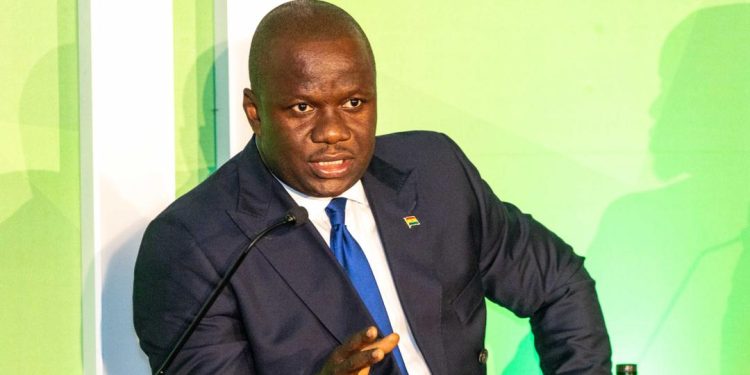Foreign Minister should pursue quiet diplomacy, not opulism – Minority Caucus urges tact and engagement – Nsemkeka
The Minority Caucus on Parliament’s Foreign Affairs Committee, led by Ranking Member Samuel A. Jinapor, has expressed deep concern over the recent direction of Ghana’s foreign policy communication.
The caucus is urging the Minister for Foreign Affairs to adopt a more measured, consultative, and professional approach to diplomacy, rather than relying on public announcements and social media.
Addressing the media, Hon. Jinapor cited the closure of Ghana’s Embassy in Washington, D.C.—a decision he described as “deeply consequential”—as an example of poor diplomatic process.
The closure reportedly followed allegations of fraud involving one individual at the mission.
“We were utterly shocked to learn of such a major decision through public announcements rather than prior consultation with the Foreign Affairs Committee,” Mr Jinapor said.
“A decision of this magnitude should have been preceded by a formal briefing and managed through discreet diplomatic channels.”
The Minority Caucus emphasised that while accountability is necessary, it must be pursued in a manner that upholds Ghana’s international reputation and supports the morale of its foreign service officers.
Past incidents involving misconduct at missions, they noted, were handled discreetly without compromising the integrity of the diplomatic corps.
“Resorting to social media or public grandstanding risks damaging Ghana’s standing in the international community,” Mr Jinapor warned.
“This approach has repercussions for our diplomats, the image of the country, and the welfare of Ghanaians abroad.”
The caucus clarified that they are not opposed to holding individuals accountable and fully support legal sanctions where wrongdoing is proven.
However, they called for such actions to be taken within the frameworks of institutional and diplomatic best practices.
In addition to concerns about the embassy closure, the caucus raised issues with recent developments at the Ministry, including the rollout of chip-embedded passports and shifting timelines for passport processing.
According to Mr. Jinapor, these initiatives have sparked public confusion due to limited consultation and weak internal coordination.
He acknowledged that the current administration, under President Mahama, is still in its early stages, and suggested that the Foreign Minister may be adjusting from the political style of opposition to the demands of high-level diplomacy.
“International relations demand tact, quiet negotiation, and consistency,” Mr Jinapor said.
“Diplomacy is not a space for political point-scoring or hasty announcements—it requires calm, careful manoeuvring that protects the country’s long-term interests.”
The Minority Caucus also revealed that even members of the Majority and the Chair of the Foreign Affairs Committee were unaware of some recent decisions by the Ministry.
This, they argued, underscores the urgent need for better transparency and collaboration between the Ministry and Parliament.
In conclusion, the Minority called on the Foreign Minister to strengthen his engagement with the Foreign Affairs Committee, prioritise institutional processes, and commit to a foreign policy agenda rooted in professionalism and tact.
“With more consultation, less populism, and a deeper commitment to diplomacy, Ghana’s global image will be preserved and enhanced,” Mr Jinapor said.
“We trust the Minister will take these concerns seriously.”

